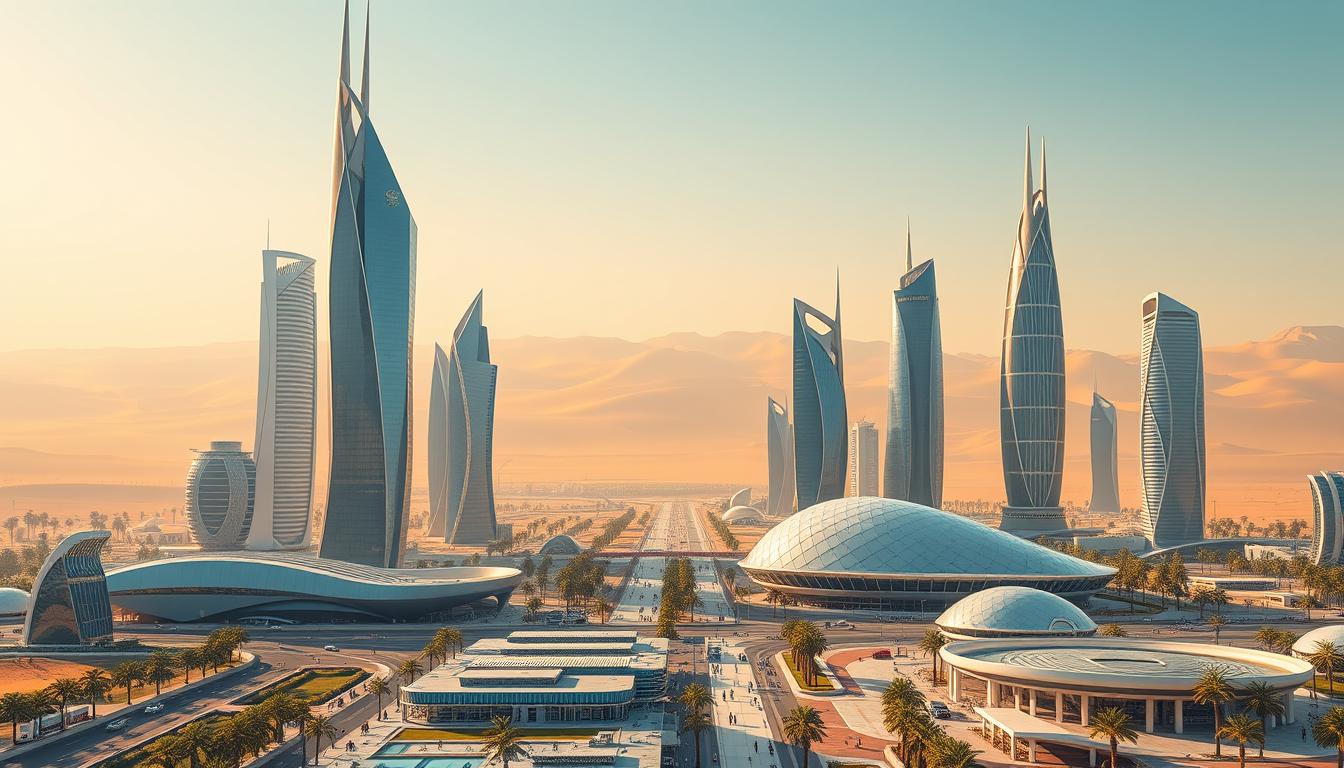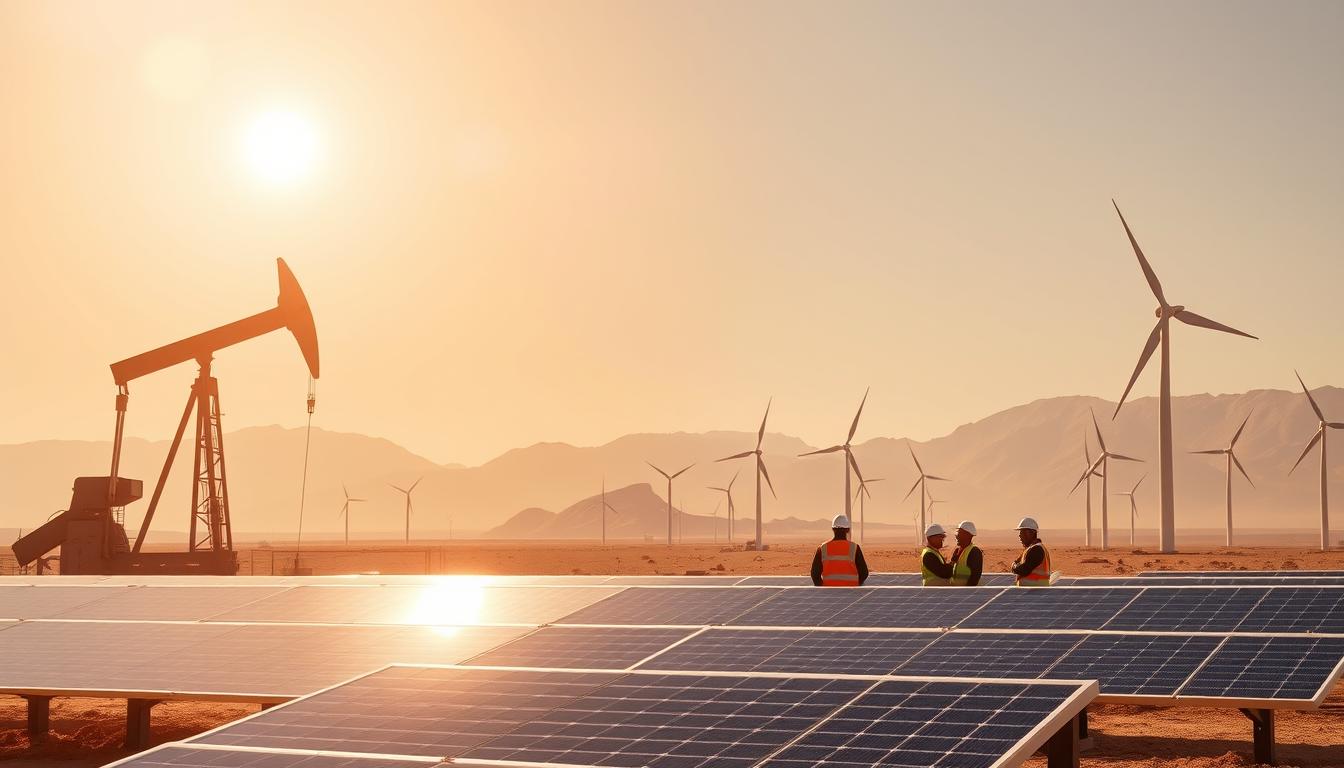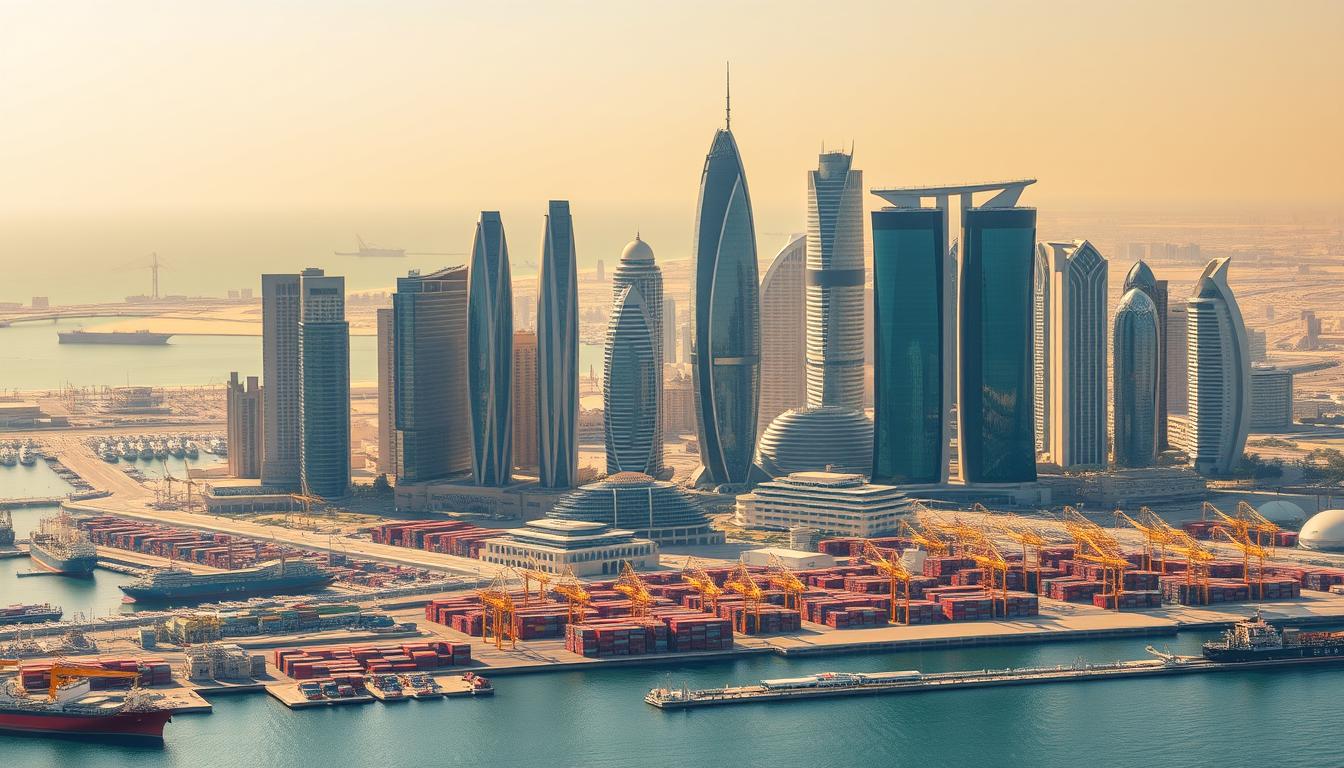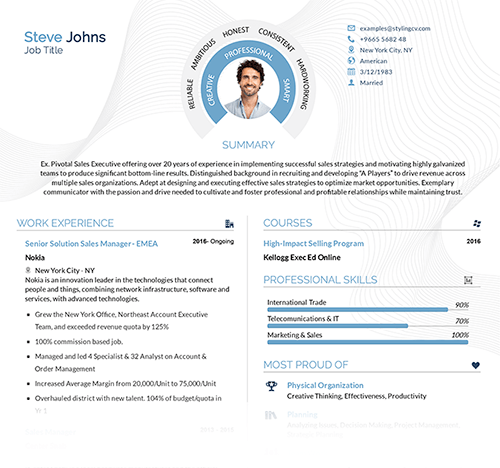Saudi Arabia is welcoming global professionals with its 2030 Vision. This plan aims to make the economy more diverse. It’s creating jobs in tech, energy, and tourism.

With the 2030 goals in action, sectors like renewable energy and finance are growing fast. Opportunities are popping up everywhere, from Riyadh to the Red Sea. It’s a great time for skilled workers to join this modernizing workforce.
Key Takeaways
- 2030 Vision drives economic diversification and job creation.
- High demand exists in tech, energy, and tourism sectors.
- Strategic investments boost career stability and growth.
- Cultural respect and global collaboration shape workplace culture.
- Abundant opportunities exist for US-based professionals.
Introduction to Transformative Changes in the Arabian Peninsula
The Arabian Peninsula is seeing big changes. Saudi Arabia’s 2030 Vision is at the center of this. It’s a plan to change the economy and society.
This vision wants to use less oil, grow private businesses, and improve public services.
Overview of Saudi Arabia’s 2030 Vision
Here are the main parts of the vision:
- Economic diversification targeting tech and tourism
- Women’s workforce participation expansion
- Cultural reforms like public entertainment initiatives
Key Drivers of Change
Three main things are pushing progress:
| Driver | Impact |
|---|---|
| Technology adoption | New job markets in AI and smart cities |
| Tourism growth | 40% increase in annual visitors by 2030 |
| Renewable energy | 50% of energy mix to be clean by 2030 |
These changes are part of a bigger shift in the Arabian Peninsula. For US professionals, there are new chances in fields like renewable energy and hospitality. The region is opening up to global talent.
Navigating Career Opportunities in Riyadh and Beyond
Riyadh’s economy is growing fast, thanks to Vision 2030. This growth is opening up new job paths for people from around the world. With a focus on innovation, Riyadh is leading the way in many industries. Here’s how you can make your career fit with these changes.
Emerging Sectors and Industries
- Tech innovation hubs like King Abdullah Financial District
- Renewable energy projects through Saudi’s NEOM and Red Sea Project
- Healthcare advancements at King Fahd Medical City
- Logistics growth in the $500B NEOM smart city initiative
“Riyadh’s tech sector will add 150,000 jobs by 2030.” — Saudi Ministry of Investment, 2023
Regional Job Market Trends
There are exciting trends for job seekers:
- More jobs for bilingual people in riyadh’s big projects
- More remote work in finance and IT
- Training in green energy and building projects
Now, employers want people with skills in green tech and digital change. Programs like riyadh’s Tamkeen help find jobs in the public sector. Look into these areas to stay on top in Saudi Arabia’s changing job market.
Saudi Arabia Under the 2030 Vision: A New Era
Saudi Arabia is changing fast under the 2030 Vision. It’s building smart cities like NEOM and tech hubs in Riyadh. Saudi arabia is focusing on new areas like renewable energy, finance, and tourism.
“The future is about diversification, not dependency,” stated a report by the Saudi Public Investment Fund, highlighting progress in AI and green energy projects.
Key areas driving change include:
- Technology: Investments in startups and digital infrastructure
- Infrastructure: Massive projects like the Red Sea Project and Qiddiya entertainment city
- Education: Partnerships with global universities to train future leaders
Cultural modernization is happening in Saudi Arabia. Workplaces now mix Islamic values with international standards. This creates welcoming environments.
Cities like Jeddah host art festivals and tech conferences. This shows saudi arabia values both its heritage and global connections.
Professionals worldwide are taking notice. Multinational firms are teaming up with local innovators. Visa reforms also welcome talent from around the world.
This era is not just about change. It’s about redefining what’s possible. For those looking to grow, saudi arabia is a place where innovation and tradition meet.
Work Saudi Arabia Trends: Leveraging Oil Production and Renewable Energy
Saudi Arabia’s energy sector is changing its global role. Oil production drives the economy now, but the country is also investing in solar, wind, and hydrogen. This mix creates jobs in both old and new energy fields.

Evolving Energy Markets
- Oil production is still key, but Saudi Arabia wants renewables to make up 50% of its energy by 2030.
- International partnerships are backing projects like the $5 billion Dumat Al Jandal solar plant.
- The Middle East is becoming a test ground for carbon capture and storage (CCS) technologies.
Sustainable Innovations
Projects like NEOM’s THE LINE city and the Red Sea Project show solar and wind’s role. Companies like ACWA Power are leading in large-scale renewable projects across the region.
“The future belongs to those who embrace both legacy and innovation.”
Jobs for energy engineers and sustainability consultants are growing. They need skills in both old and new energy systems. Training programs are now teaching this blend.
Embracing Islamic Culture and Traditions in the Middle East
Islamic culture is a big part of daily life and work in the Arabian Peninsula. It mixes well with modern ways, creating a special place for global workers. They can learn and respect local customs here.
Cultural Insights and Community Values
Family and respect for elders are key in both work and personal life. Workplaces make room for prayer and follow Islamic ethics. Important traditions include:
- Five daily prayers in special spaces
- Charity (zakat) in company giving back
- Respectful gender policies
Celebrating Heritage in Modern Workplaces
In Saudi Arabia, companies keep traditions alive while going global. Offices often have:
- Art showing Islamic history
- Eid celebrations with music and food
- Arabic and Islamic studies classes
“Tradition is the compass guiding progress,” says a 2023 report by the Saudi Ministry of Culture. It shows how to keep heritage alive while innovating.
Knowing these aspects helps workers do well in places where islamic culture is important. Employers now see cultural understanding as key for working together worldwide.
Gulf Countries and Opportunities: Beyond Mecca and Medina
Mecca and Medina are famous worldwide for their cultural and spiritual value. But, the Gulf region is growing in many ways beyond these cities. Places like Jeddah, Dammam, and the Red Sea Project are leading in tech and tourism.
- Jeddah: Financial and cultural center with booming real estate and retail markets.
- Dammam: Energy sector expansions offer roles in oil, gas, and infrastructure.
- NEOM: Futuristic city focused on AI and clean tech, backed by Saudi Vision 2030.

“The Gulf’s economic potential lies in its diversification,” says a 2023 World Bank report, noting growth in non-oil sectors like logistics and entertainment.
There are also new chances in tourism outside of holy sites. The Red Sea Project is building luxury resorts and cultural sites in Al-Ula. It attracts investors from all over. Entrepreneurs can also find opportunities in tech hubs like Riyadh’s King Abdullah Economic City.
Mecca and Medina are still important, but the Gulf’s future is bright in new areas. It offers jobs in renewable energy and digital startups. The region welcomes talent to explore new horizons.
Insights for US Job Seekers: Making the Leap to the Arabian Peninsula
Exploring career paths in the gulf countries offers exciting opportunities for professionals. Start by understanding the steps needed to transition smoothly into this vibrant job market.
Visa and Relocation Advice
Secure your journey with these key steps:
- Research visa categories: Employer-sponsored work permits are common in the gulf countries.
- Partner with relocation firms for housing and logistics support.
- Check health insurance requirements and cultural adaptation programs.
Building a Global Network in the Gulf
Expand connections through strategic networking:
| Strategy | Action Steps |
|---|---|
| Professional Groups | Join industry associations like the Saudi American Business Council. |
| Local Events | Attend tech fairs or sustainability summits hosted in Riyadh or Dubai. |
| Digital Engagement | Follow Gulf-based LinkedIn groups for energy or tech sectors. |
Connecting with local and international peers amplifies visibility in gulf countries job markets. Start now to unlock global career potential.
Future Prospects in the Red Sea Region and Surroundings
The red sea region is at a key spot for global trade. It’s set for big growth. Governments and investors are working on tourism, energy, and logistics to boost it. By 2030, it wants to be a world leader in innovation and green growth.
“The red sea’s potential lies in its ability to connect continents and drive economic collaboration.”
Economic Growth Projections
Several areas are leading the way:
- Ports and maritime infrastructure: Expanding places like King Abdullah Port to increase trade.
- Tourism: The Red Sea Project plans to build luxury resorts and eco-friendly spots.
- Renewable energy: Solar and wind projects are cutting down on fossil fuel use.
Regional Investment Opportunities
Investors are looking at:
- Real estate: There’s a big need for homes and business spaces near the red sea.
- Technology: Startups are working on smart cities and digital projects.
- Maritime industries: Logistics companies are setting up bases to support growing trade.
These plans show a promising future for those interested in the red sea’s economy.
Conclusion
The 2030 Vision has changed Saudi Arabia’s role in the world, opening up new chances for professionals everywhere. It’s brought new energy projects and cultural efforts that mix old traditions with new ideas. This change is clear to see.
In the US, job seekers can find exciting fields like tech, healthcare, and building projects. These jobs are made easier to get thanks to simpler visa rules and more connections around the world.
New places like Riyadh and the Red Sea Development show the country’s economy is growing fast. This growth comes from investments in green energy and tourism. It means there are many jobs available, from engineering to hotel work.
The Saudi job market is moving towards more variety, which means better chances for career growth in the long run.
For Americans thinking about moving, looking into Saudi Arabia’s job sites and talking to local experts can help. The kingdom is working to use less oil and more clean energy. This is a great time to join in and help shape the future of the Arabian Peninsula.
FAQ
What are the key objectives of Saudi Arabia’s 2030 Vision?
The 2030 Vision aims to make the economy more diverse. It wants to reduce oil dependence and improve life quality. This will happen through cultural updates and better city infrastructure, like in Riyadh.
Which sectors are experiencing growth in Saudi Arabia?
New growth areas include renewable energy, tourism, entertainment, and tech. These sectors are key as Saudi Arabia moves away from oil.
What cultural considerations should I be aware of when working in Saudi Arabia?
It’s vital to respect Islamic culture and traditions. These are big in the workplace and community. Knowing these norms helps you fit in well.
How can job seekers from the US navigate the relocation process to Saudi Arabia?
Job seekers should look into visa needs and get ready for cultural changes. Building a network in the Gulf can also help with the move and career growth.
What investment opportunities exist in the Red Sea region?
The Red Sea is seeing investments in tourism, real estate, and green energy. This is thanks to its location and Saudi Arabia’s 2030 Vision to boost coastal cities.
How is Saudi Arabia balancing oil production with renewable energy?
Saudi Arabia is putting a lot into renewable energy while keeping oil production up. It aims to create a green energy market for future economic growth.
What are the trends in the job market across the Gulf countries?
The job market is looking for skilled people in tech, health care, and tourism. Gulf countries want to diversify and get better at competing globally.


